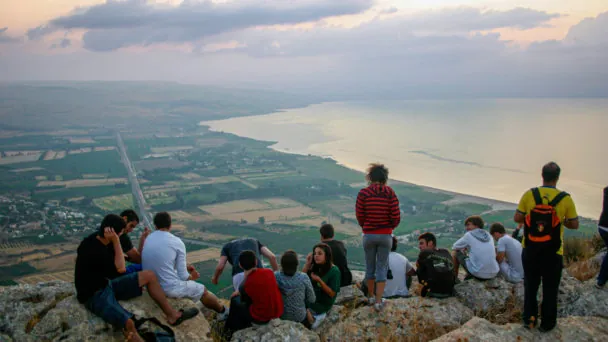It was Passover break in 1996 when a woman walked into our first National Messianic Youth Conference. She introduced herself as Rona Shemesh,1 a journalist from Israel’s largest newspaper, Yediot Aharonot. Young and charming, she told us she had come to visit her brother on the kibbutz where we were meeting, and had heard there was a Messianic event happening. She was intrigued and asked if it would be all right if she sat in on some of the meetings.
Messianic Jews in Israel faced very real persecution on the job, in school and with neighbors. And because we were a tiny minority in the land, many believers were cowed into a semi-underground mode. But it was our children, who were still growing in their identity and understanding of God and the world, who suffered most. A child from a Messianic family was often the only believer in his or her entire school. We knew that bringing together other young people like them to publicly celebrate our faith in Yeshua would be incredibly strengthening. Full of expectation, six congregations sent their youth and leaders to participate in this conference.
We had nothing to hide so we told the journalist she was welcome to sit in on the services. She met with a number of the teenagers and talked to them about their faith. She was amazed to see young people so turned on to the God of Israel and she commented to us on the positive influence this conference was having on our youth. After the conference, she called one of the youth team leaders and said, “I have been so moved by what I have seen, that now that I am home, I am afraid to turn on the TV or the radio for fear I will lose this wonderful feeling. The public needs to know about you all,” she enthusiastically exclaimed.
Hunting Souls
Three weeks later, a full four-page article about the conference appeared in the weekend magazine section of her newspaper. The title on the cover page screamed “Tsahyahdey Hanefashot”—translated as “Soul-Hunters” or “Soul-Stalkers”2 (a common term to describe how Jews view the Christian Crusaders who forced Jews to convert or die “in Jesus’ name” in the Middle Ages).
In blaring headlines it began:
At the start of the Passover vacation, 120 Israeli teenagers took part in a three-day conference of Messianic Jews who believe in Yeshu [an unbeliever’s way of spelling Yeshua’s Name]. Some of them are deprived children, some of them from traditional homes, most of them without their parents’ consent…”
The article then mocked God, blasphemed the Messiah, and represented the conference as something akin to a Satanic cult:
A girl named Dorit ascends the stage; she looks hysterical …“Satan,” she shouts and cries with the background music, “Satan hates you; he wants you to die! Receive God, so you can have control over your lives. What do I have in my life?” She sobs, “There is nothing …”
Shemesh summed up her “impressions”:
The message given at the conference: the world is filthy, and you losers will die anyway like that drugged Rebecca (a girl who died of an overdose of drugs). So, if you must die, why not go to heaven? The hell which you are going through now is nothing like the hell which awaits you there, once you die of a terrorist attack, or who knows what.
Saving Israel with Chocolates
We had also invited a dynamic youth group from Chicago called “Souled Out.” A common icebreaker for youth meetings in the U.S., they threw out a few handfuls of candies, along with half a dozen CD’s from believing artists (which at the time were difficult to obtain in Israel).
The journalist’s description, however, exclaimed that “showers of chocolates and discs” were thrown at the youth. She carefully removed any reference to the God of Israel and explained that through these gifts, the Messianics “close in bit by bit on the mixed-up souls” of the teenagers.
From a legal standpoint, the most serious accusation of the newspaper was that the Israeli teenagers attended our religious event without their parents’ permission or knowledge—a crime punishable by prison. (As if 120 young people could disappear during Passover vacation from their homes without a trace for three days.) All through the article, Rona insinuated that the young people were victims of severe emotional and spiritual manipulation.
The paper splashed photos with blurred faces of the attending teens—including our son Ayal—with captions like, “they use music to push their message”, “16-year-olds in crisis”, “a bigger conference planned for the summer,” and “the parents don’t know.”
What the newspaper failed to state was that out of 120 youth, 114 were from Messianic homes. And no one was more thankful for the conference and the fruit that came from it than the parents. The other six teenagers who came as a result of relationships with our two teenage children, brought written permission slips from their parents who, although they didn’t personally agree with our belief, were thankful for the positive influence we were having in their kids’ lives.
When the article came out, there was understandable outrage from the participants of the conference. However, we could not have anticipated the outrage against the article expressed by our unbelieving friends who knew the wild description of us in the paper did not match reality.
Do We Sue the Largest Newspaper in Israel?
We had been living in Israel nearly thirty years at that time, and had had numerous articles written about us, as had other Messianic Jews in the land. Though they never advocated for us, most of them were relatively fair and surprisingly, occasionally even sympathetic to our beliefs and our rights to believe the Bible as we understand it. We took the exposure each article offered in stride—like the necessary birth pangs that come with introducing such a new—or reintroducing such an ancient—concept to Israeli culture.
We considered on a personal level that perhaps Rona did indeed experience the magnificent presence of God at the conference. But once the feeling faded, did she either allow her ambition as a rising journalist to push her to write a sensational story or was she perhaps pressured not to write a favorable article by religious influences?
“Messianic Jews have Committed Criminal Offenses”
We wrestled with the question of confronting the paper as we felt great consternation over the potential fallout of this vicious and deceitful article. We were concerned this article would reinforce the negative perception that existed in the collective Israeli consciousness—that Messianic Jews are cultish, prey upon children, and are ultimately unscrupulous “charlatan Christians in Jewish clothing.” In addition, we felt great concern and sorrow for the leaders of the other five congregations who were now also under criminal investigation. After all, we had been the ones who invited them to participate with us in the conference.
To bolster her article, Rona contacted the General Director of the National Council for the Welfare of Children. She presented him with her story, and included his response in the article. The headline ran: “Yizhack Kadman: This is a criminal offense.”
The facts are severe, from an educational and lawful point of view,” claimed Kadman. “Anyone who attempts to convert anyone to their religion for the exchange of anything material or other [like candy], is breaking the law, to the best of my knowledge, which penalty is prison. According to the description, we are dealing with people who have committed criminal offenses. The first thing that needs to be done, is to make a complaint to the police, and we will be the first ones to do this…We need to prevent deprived children from falling into the hands of charlatans.
Kadman proceeded to contact Israel’s Attorney General, and initiated criminal proceedings against us with possible penalties of prison. We concluded we had to fight back and procured Attorney Gili Harish, one of the best lawyers in the country.
Our attorney explained to us that reporters can say anything they want about their “impressions” of an event. Here slander is legal; newspapers are quite free to distort and falsify facts, especially concerning believers in Yeshua the Messiah. But it is illegal for them to falsely accuse us of criminal activities. After prayer and counsel, we decided to sue this media giant—on this point only.
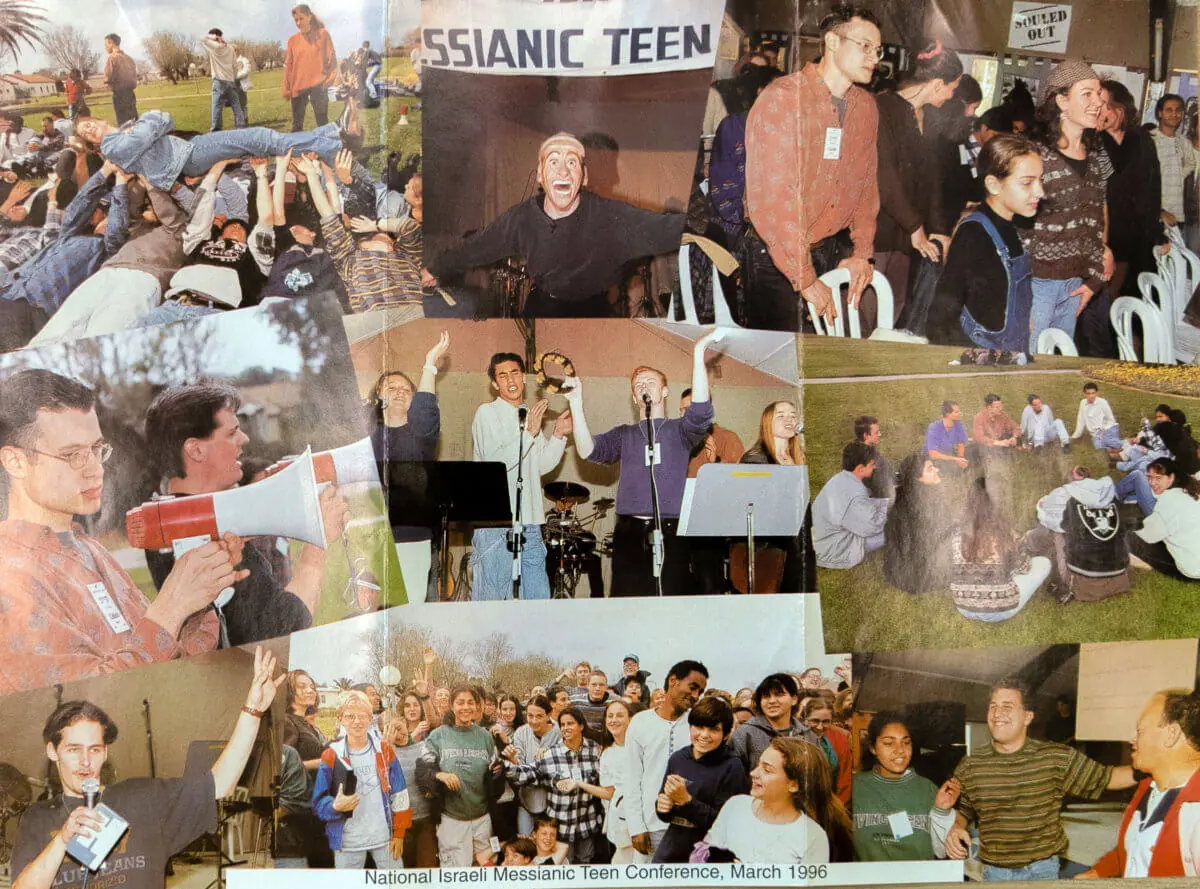
Original photo spread of the national youth conference published in the 1996 Maoz Israel Report
Under Investigation
Unfortunately, even when you are innocent, nothing happens quickly in the legal world. Six months later, we received a phone call ordering us to appear at the police station for questioning. We produced for them the parents’ permission documents, but they began their interrogation by asking us in great detail what we believe, and what the difference is between Messianic Judaism and Christianity. Though the circumstances were uncomfortable, we saw it as an incredible opportunity to have the undivided attention of the police as we preached the Good News for several hours!
We also told them about the lives of Messianic Jews in the land—that they serve in the army, pay their taxes, celebrate the Biblical holidays; in short, the Messianic community is made up of hardworking, law-abiding citizens.
We could feel immense pressure coming from the ultra-Orthodox behind the scenes with their demands to ban all Messianic youth meetings, even with parental permission. The leaders of the other cooperating congregations were all under investigation. When the police reported they had found no violation of the law, the Attorney General demanded they reopen the investigation a second time. Finally, the police closed the case permanently having found no criminal offense.
To us, however, the most unfortunate part of the year-long investigation was the harassment of the unbelieving parents who had given permission for their teens to attend the conference. Parents told us they had received intimidating calls from the journalist and also the police warning them of our “Christian” cult and inquiring if they were aware of the harmful nature of the conference. Police warnings like this would scare any parent.
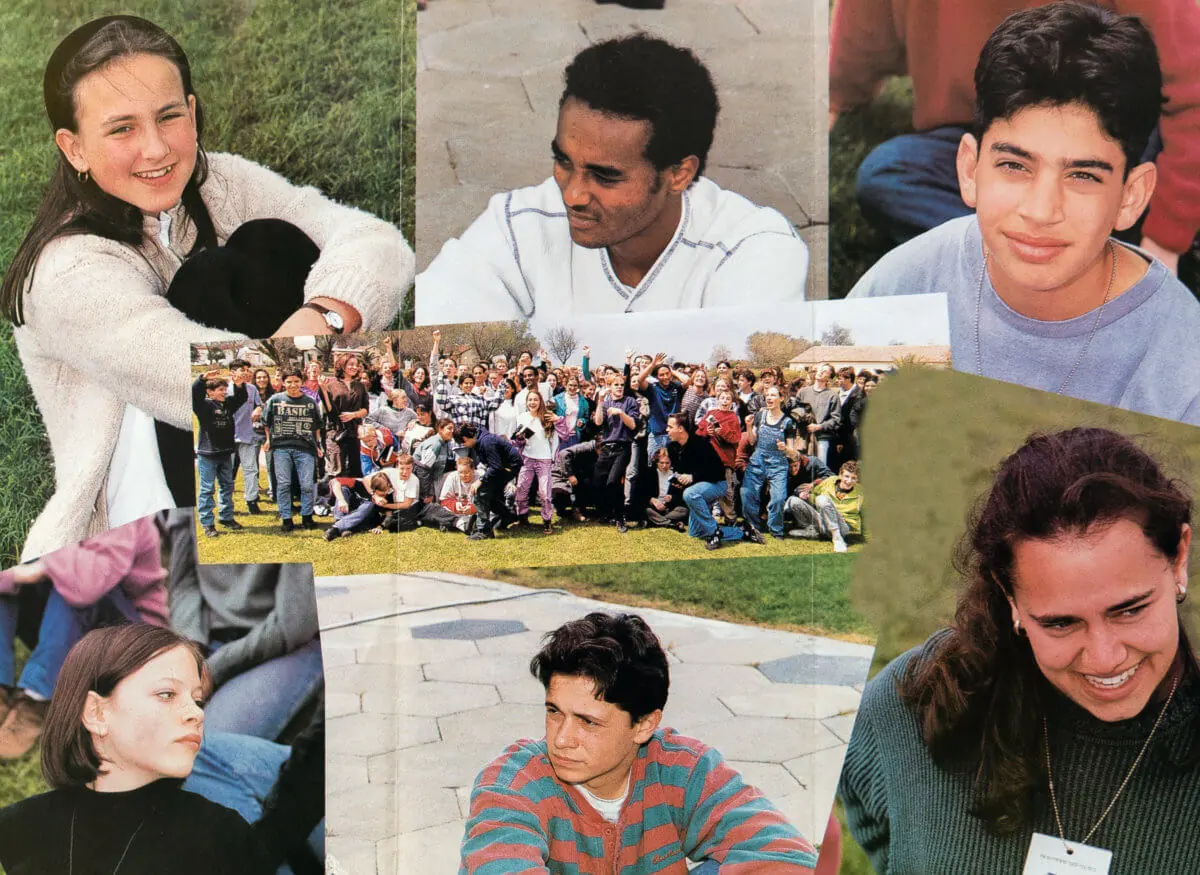
Believing youth who attended the conference
Our Suit Against Yediot Aharonot
While the criminal investigation took a year, the lawsuit against the paper dragged on for three, with many delaying tactics from the newspaper’s side. They tried in every possible way to get some of the non-Messianic parents to testify against us. No one did.
Finally, our lawyer advised us that if we won the case and received financial damages and apologies, the whole story would again be splashed all over the papers, this time in other newspapers as well. He felt, because of the length of time that had elapsed, most people would have forgotten the contents of the offending article. A court decision would mean all the obscenities and vulgarities concerning our faith in Yeshua would be dredged up again. It would be better to have the newspaper quietly write a personal letter of apology to us, he counseled. We agreed.
Translation of Yediot Aharonot attorney’s letter read as follows:
In the article published on 19.04.1996 titled “Soul Stalkers” were found several statements that were not accurate regarding the issue of parents’ permissions. It was found that permissions were indeed given by the parents for the participation for their children in the conference. This and more: In regard to the writings under the picture of one of the youths that read: “The parents don’t know,” it was found that the statement was not correct and the parents of the youth in the picture did know. My clients apologize for the errors in the article. With regards, Mibi Mizer, Attorney.
Our lawyer believed that because we took a legal stand against the most powerful paper in the country that they would be more cautious before publishing fallacious articles about Messianic Jews in the future. For the most part, this was an accurate assessment. And as a final stamp of approval that we had handled the situation wisely, without our requesting such, the judge ruled that the newspaper pay court costs.
Looking back 25 years later, one of the most beautiful long-term fruits that came of this conference is Moti Cohen. He was one of the six unbelievers that attended that conference and gave his life to the Lord there. He would go on to become a youth pastor and eventually an elder at Tiferet Yeshua congregation. Growing up with a rough background has given him a unique heart for hurting people for the past 20+ years and he has shown his faith by his works on the streets of Tel Aviv and with Messianic youth groups throughout Israel. Fruitfulness that remains to this day!
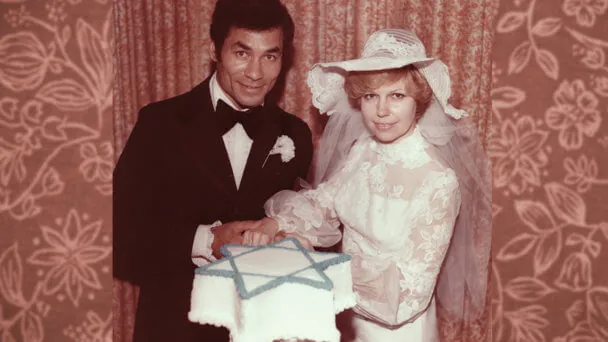
How it all began
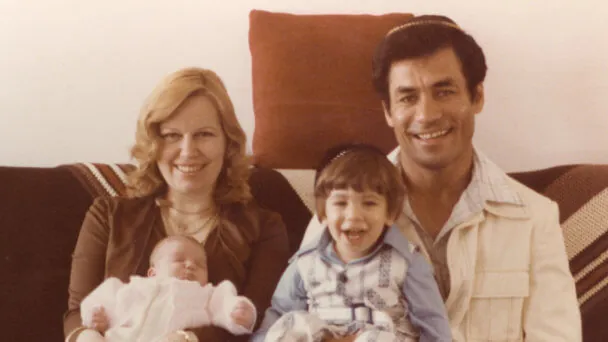
When Ari Met Shira
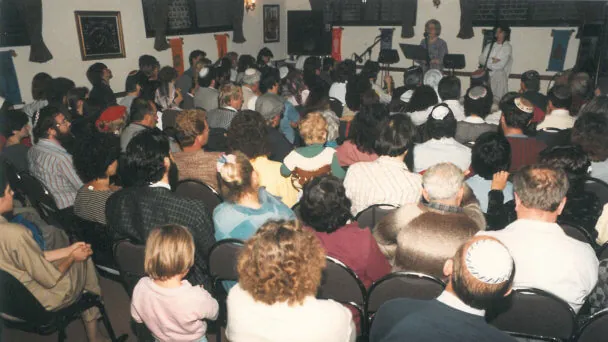
The First Congregation

The War, the Immigrants and the Training Center
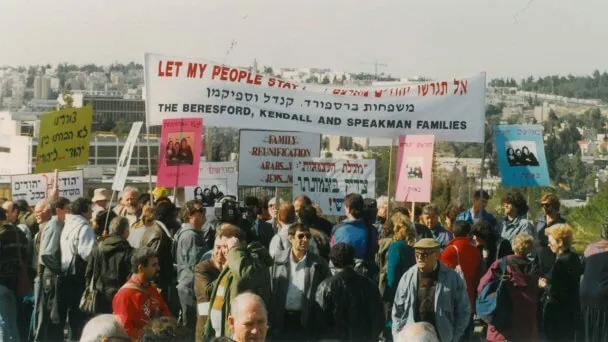
Israel’s Second Underground Railroad
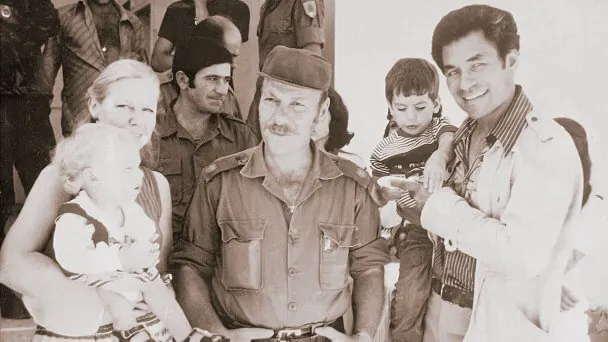
The Major and the Millionaire
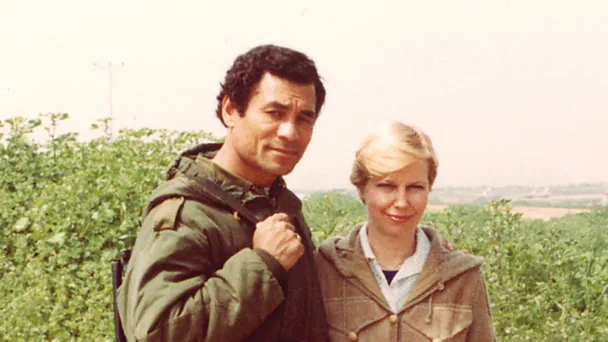
Diary of an Israeli Soldier

The Right to Exist
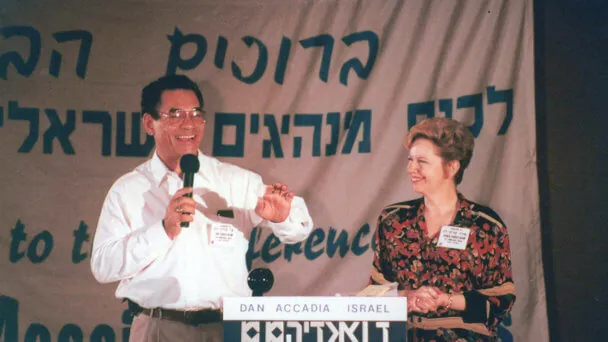
Never Say Never

The Birth of Tiferet Yeshua
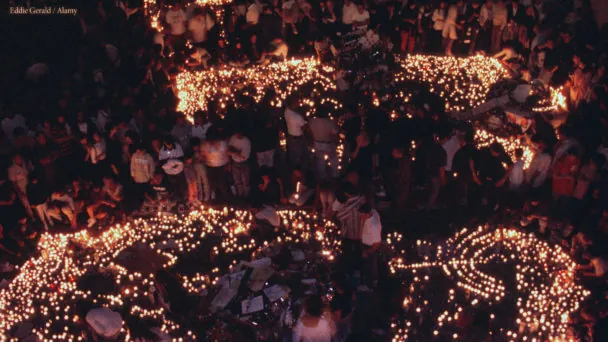
A Spark in the Dark
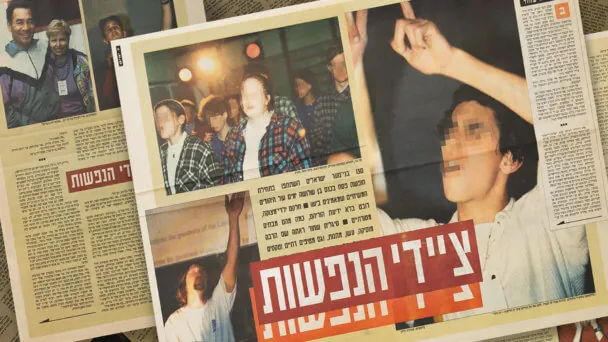
The News & The Police
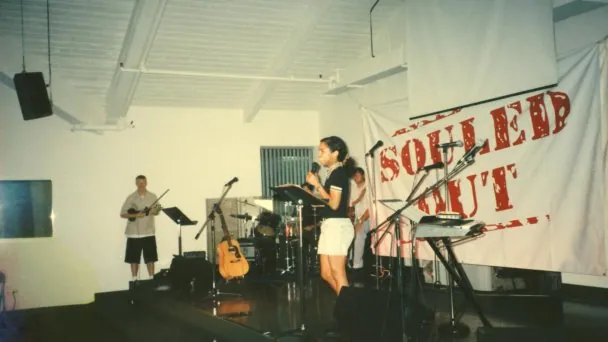
Souled Out Comes to Israel
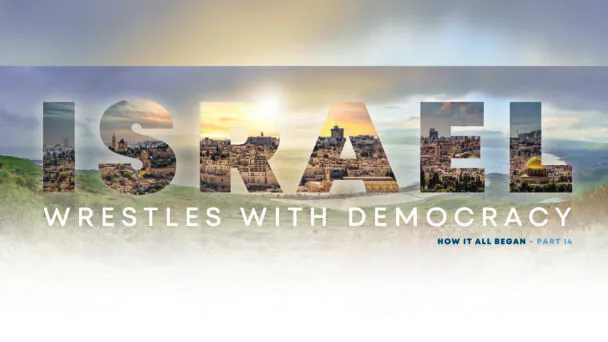
Israel Wrestles with Democracy
